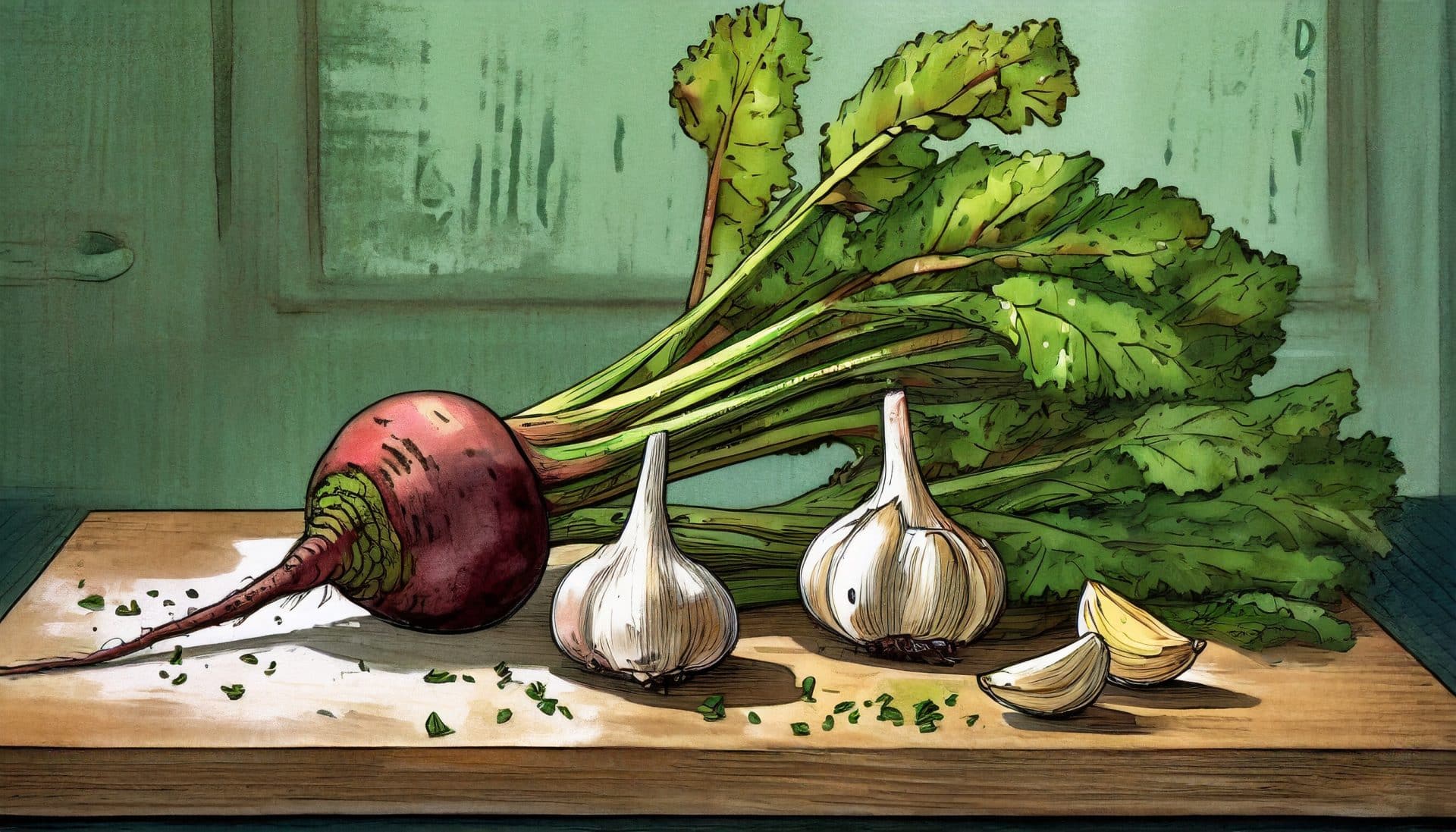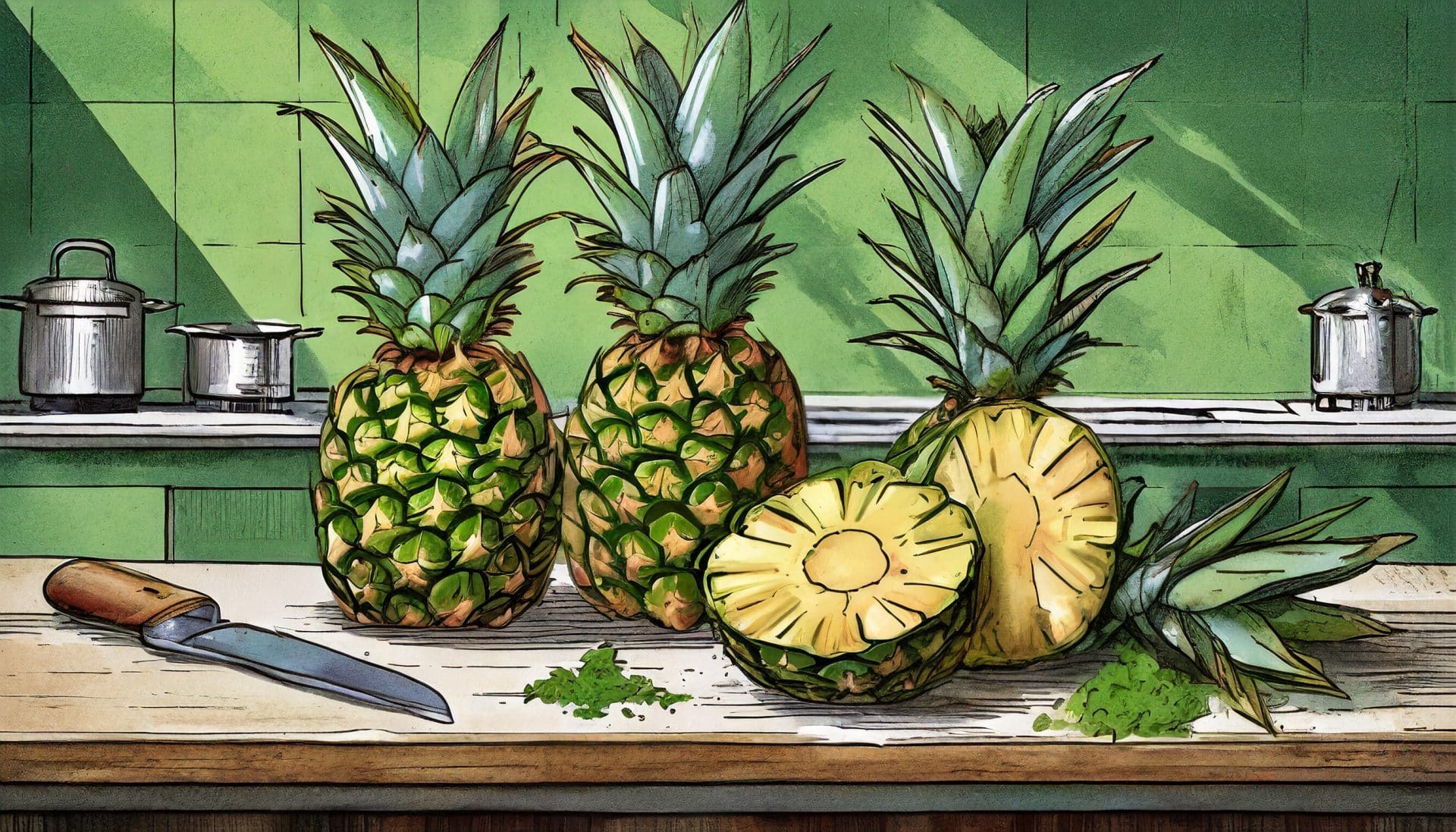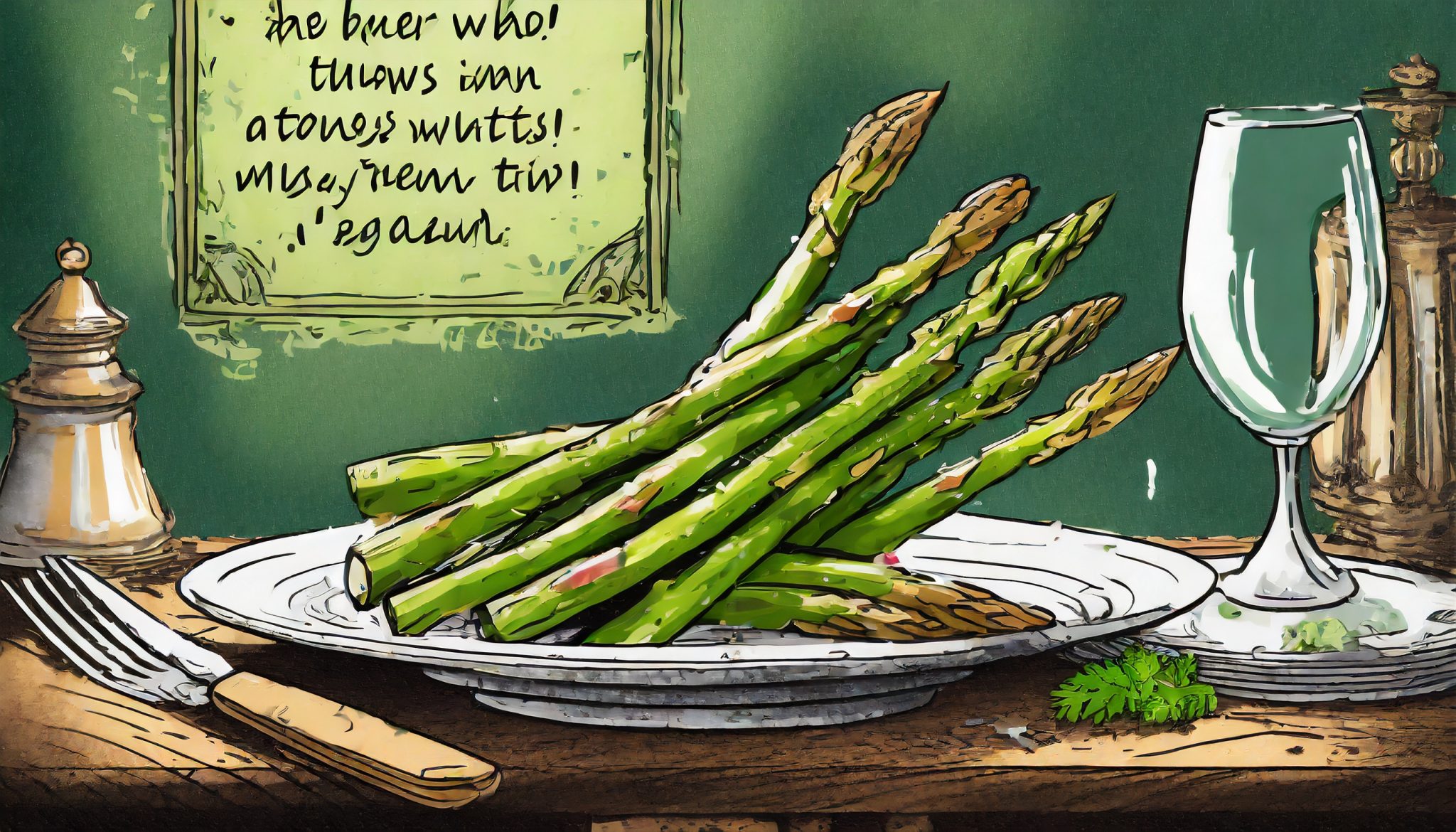Have you ever served asparagus and later thought something’s gone amiss in the loo? The phenomenon of asparagus causing a distinct, some say unpleasant, odour in urine has been a topic of fascination and a party conversation winner for quite some time now. But what’s the scientific deal with this? Is the asparagus bender responsible for this curious olfactory offence, or is there a more reasonable explanation?
The Science Behind the Scent
The secret lies in a chemical compound aptly named asparagusic acid (try saying that three times fast!). When your body breaks down asparagusic acid, it results in a group of sulphur-containing compounds with a somewhat… pungent aroma.
| Compound | Description |
|---|---|
| Methanethiol | Gives a rotten cabbage smell |
| Dimethyl Disulphide | Has an unpleasant odour |
| Dimethyl Sulphide | It has an unpleasant odour |
But why, you might be asking, does this happen with asparagus and not your morning toast?
Asparagusic acid is, fittingly enough, found primarily in asparagus. It’s a unique little compound, and its breakdown during digestion unleashes the aforementioned sulphur-bearing fruit of its labour into your bodily systems and eventually into- you guessed it- your urine.
Why Can’t Everyone Smell the…Victory?
But hold on – a plot twist is coming! Not everyone can smell asparagus wee. Some studies suggest a genetic predisposition behind this ability. Yes, you read that correctly! The ability to smell asparagus-induced urine might be another thing to thank (or scorn) your parents for.

Beyond Asparagus: Surprising Foods That Can Alter Your Body’s Odor
Well, dear reader, our humble asparagus isn’t the lone ranger when it comes to causing a bit of a stink. Quite a few unexpected culprits can also alter our body’s fragrances. Ready to dive in? Let’s take a whiff and explore what’s cooking.
Drumroll, Please, Garlic Makes the List
You’ve come to chat about smelly pee, and you’re staying for the fun part. Well, here’s a showstopper for you. Garlic can alter your body odour. It’s not entirely surprising, considering the potent punch of garlic breath that can clear a room faster than a fire alarm. But, the big difference? Your body sweat can reek of it. When you eat garlic, the sulphur compounds get mingled with your bloodstream, and when you sweat, it’s like a little Eau de Garlic coming out.
We Have a Beetroot Alert!
Don’t laugh. It’s an actual thing! Eating abundant beetroot can give your urine a distinctive pinkish-red hue, often mistaken for blood. This relatively harmless condition is known as ‘beeturia’.
Spice Girls (and Guys), Beware
Can your love for a spicy curry make you smell spicy—or worse, sweaty? Indeed. Consuming a substantial amount of spices like cumin, curry, and fenugreek seeds can seep into your skin’s pores, inducing a certain zest in your body’s odour. So, don’t forget your deodorant next time you plan on a spicy gastronomic adventure!
Warriors of the Fish Realm
Fish, particularly those loaded with omega-3 fatty acids, are undoubtedly good for your health. But when you munch on a substantial amount, your body odour can get pretty fishy. It’s all thanks to a compound called trimethylaminuria. And no, you’re not turning into a mermaid or merman just yet.
So, asparagus isn’t the only food that can create a bit of a stink. Each mouthful you take can potentially affect your body odour. So next time you sniff something fishy – literally or figuratively – you might want to cast an eye over your dinner plate!

Bonus (not for kids): Can Pineapple change the taste of your Semen?
Ah, the pineapple! We’ve all heard the old tale – eat pineapple, which will make everything down there taste sweeter. But is there any truth to this? As intriguing as this sly wink of an anecdote may be, the science is as messy as an overripe pineapple left in the sun too long.
First things first, what’s with the pineapple and our bodily fluids? The crux of the matter is two-fold:
- Bromelain – A potent enzyme found in pineapple. It has anti-inflammatory properties, and it’s believed to break down proteins, potentially altering the taste of semen.
- Fructose – This natural sugar in fresh fruits (including pineapples) could potentially sweeten the taste.
Does this mean a pineapple-rich diet could cause semen to take on a bespoke tropical flavour? As promising (or horrifying – depending on your take) as this might sound, it isn’t that clear-cut.
Remember, our bodies are complex. Like each of us, they come with their peculiar quirks. What works for one might not necessarily translate the same for another.
Research in this field is somewhat scant, and at best, I’d venture to suggest that a diet high in fruit might improve the taste. Conversely, a diet high in fatty foods, garlic, onions, caffeine, and alcohol could result in a change for the worse.
So, does it hold up?
As far as modern science is concerned, the ‘Pineapple Theory’ isn’t anything more than an urban legend. Your diet can somewhat influence the taste of your semen, but a direct one-to-one correlation, such as pineapple equals sweet semen, is implausible.
In conclusion, like many things in life, the pineapple-semen connection is a mystery wrapped in an enigma, surrounded by a riddle. The definitive answer, as it stands, is that we don’t know.



